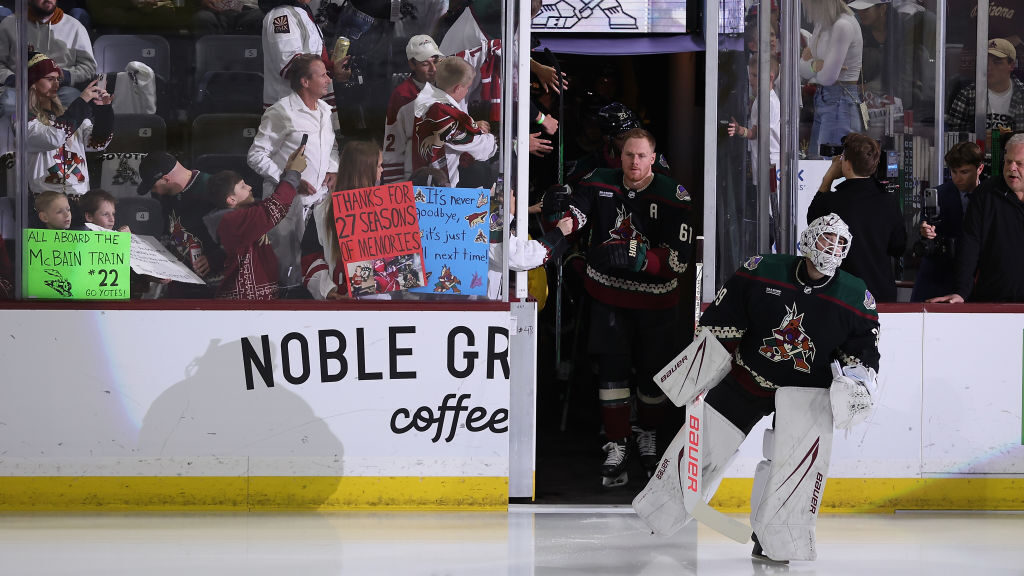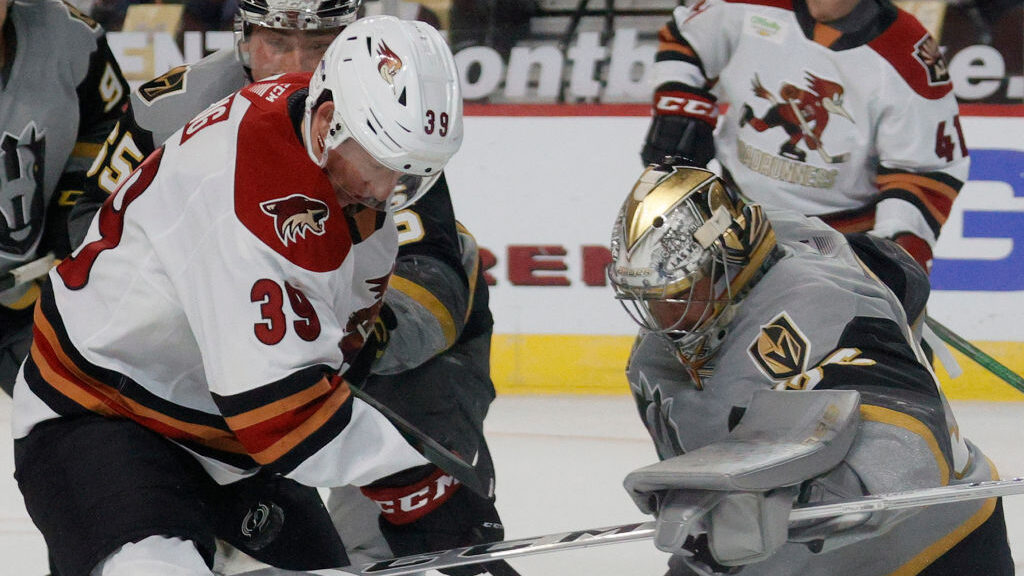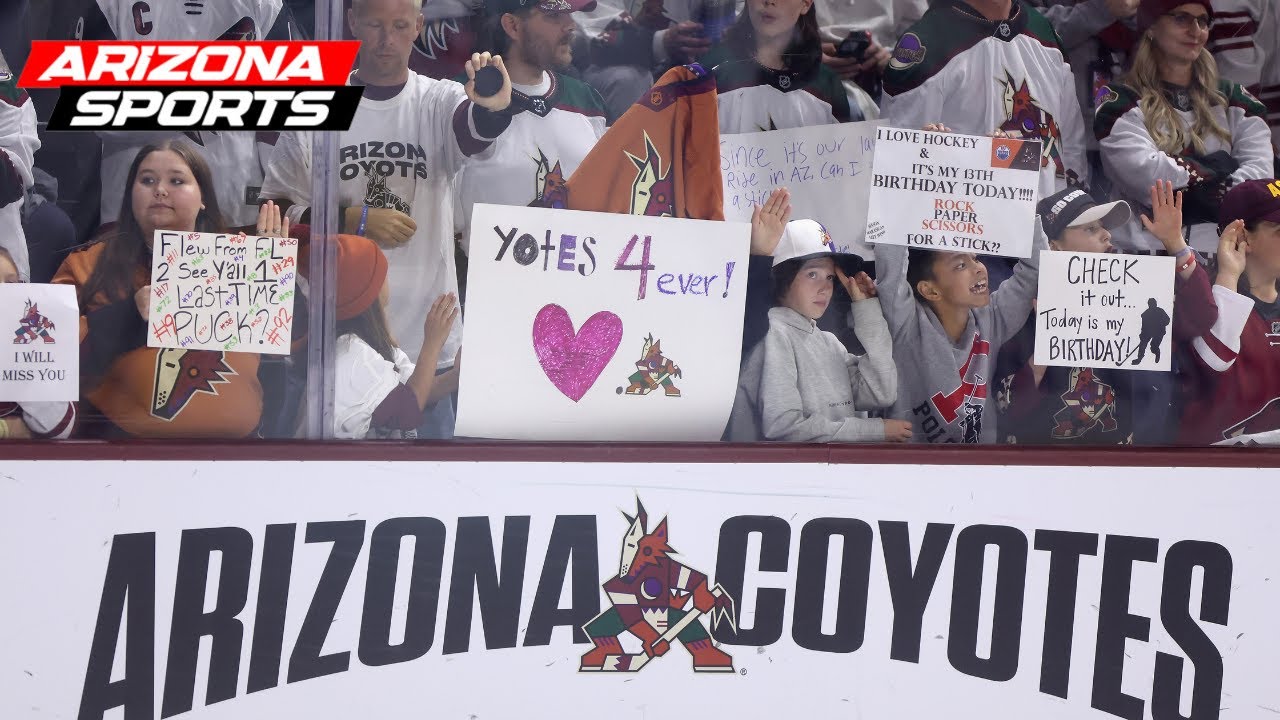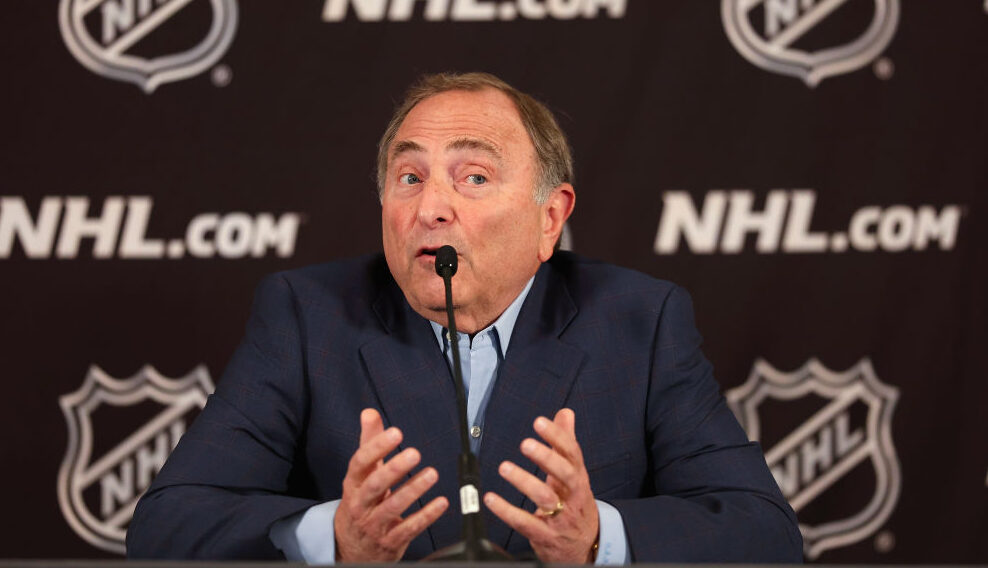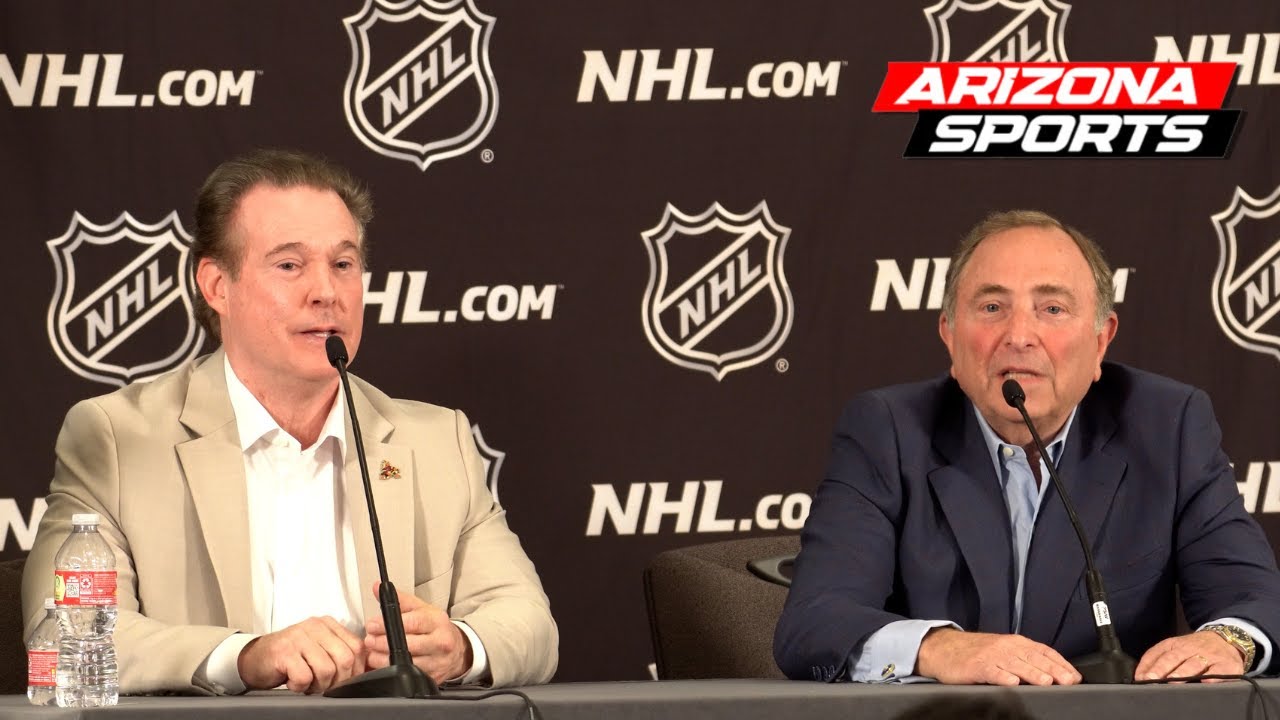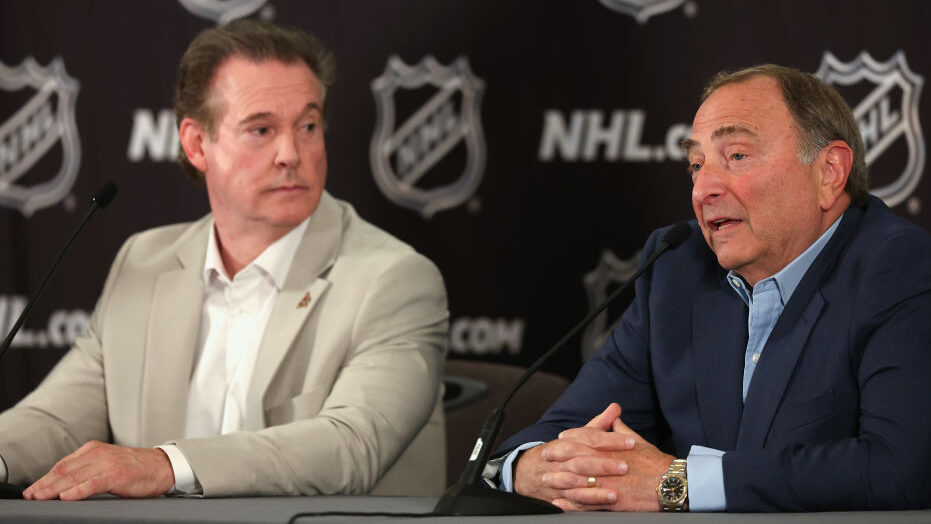Morgan: Coyotes need the right location to succeed — it’s not Glendale
Mar 10, 2017, 3:34 PM | Updated: Mar 11, 2017, 3:25 pm
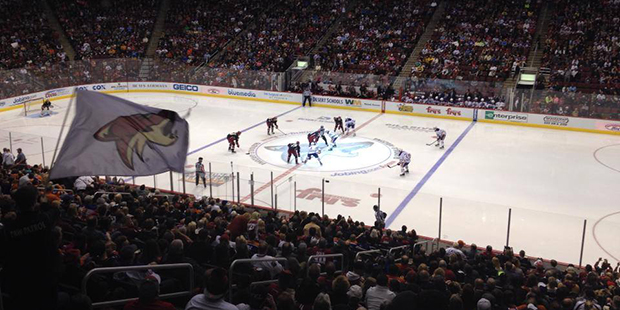
(Facebook Photo)
(Facebook Photo)
GLENDALE, Ariz. — Nobody is blameless in the latest war of words between the NHL, the Coyotes and the city of Glendale — a conflict at least eight years old that has drawn state lawmakers into the fray.
The hard truth for the team is that it has produced four winning seasons, three playoffs berths and two playoff series wins in 13 seasons in the West Valley location that welcomed it when nobody else would. Winning sells in any market, but it’s especially important in one as fickle as Phoenix. Repetitive losing is an unwise investment of fans’ dollars and emotions.
In 13 seasons in Glendale, the Coyotes have endured poor ownership from Steve Ellman and Jerry Moyes, poor coaching from Wayne Gretzky, poor drafts, poor development of those draft picks, poor management from general manager Mike Barnett, an attempt by Moyes to put the team into bankruptcy in 2009, four years of frugal league ownership. There’s also been an endless and sometimes comical carousel of ownership suitors from Jim Balsillie, Matthew Hulsizer and Jerry Reinsdorf, to Greg Jamison and Darin Pastor (remember him?).
There was a protracted sale to IceArizona, some missteps by the new and inexperienced ownership group, and now a long-needed rebuild whose architects are suffering in the shadows cast by their predecessors. The past is haunting the Coyotes, even if none of its current actors are responsible for it.
On the flip side, to cast the city of Glendale as the victim in this saga is to ignore its own recent history. The city has a record of poor business practices with sports franchises. Just ask Cardinals team president Michael Bidwill about his repeated disputes with his civic partner, and take a look at where all the Super Bowls activities were hosted the last time the NFL’s marquee event came here in 2015.
Recent editorials have defended the city for ending what they called “subsidies” to the Coyotes when it voided a 15-year arena lease and management agreement in 2015 — less than two years after it signed it. Those editorials gloss over the fact that the city of Glendale broke a business deal it had signed with the team, citing a conflict of interest over the Coyotes hiring two former Glendale employees that never made its way to court, despite the opinions of five independent legal experts that the Coyotes had the better case.
We’ll probably never know whether the Coyotes settled because they feared a hidden trump card or because they feared a protracted legal case and decided they were already at a breaking point with Glendale. The Coyotes’ hirings, and their delay in releasing financial statements to Glendale per their agreement, raise questions about their commitment to the partnership, but Glendale had questions about city employees joining the team as far back as the Jamison deal. The city held onto them when this dispute could have easily been resolved beforehand if the city had actually intended to act as a true business partner.
If you think breaking signed business deals is a trifle, you have no concept of the business world and the importance of holding to agreements. Business leaders and scholars across the Valley were clear in underlying the significance of Glendale’s decision.
“Even if they eke out a victory in the short term … they could still lose in the long term by damaging their brand for future negotiations,” said Rodney Smith, the director of the sports law and business program at Arizona State University’s Sandra Day O’Connor College of Law. “Anyone is going to think long and hard before they decide to do business with Glendale.”
In the wake of that decision, the Coyotes are seeking to establish a community engagement district elsewhere in the Valley. A portion of the tax generated within that district would be used to help pay debt service on bonds used to fund construction of an arena. Without that district, the undeveloped site would generate no tax revenue, so the Coyotes say the state can either have slightly more than half of something or all of nothing. The counter-argument, and it’s a valid one, is what will be lost in Glendale in the form of tax revenue and another tax-funded stadium whose very survival would be at risk.
It’s clear lawmakers and taxpayers do not have the appetite to pursue such a venture, based on recent polls and an Arizona Republic story that canvassed lawmakers and found that the legislation introduced by Sen. Bob Worsley (R-Mesa) does not have the votes required to pass the Arizona Senate. To hear lawmakers and taxpayers shouting the simplistic mantras of no taxpayer dollars for rich sports owners and support education for our kids instead is disingenuous, however.
This is coming from the same lawmakers and taxpayers who have shown no such commitment to education at any point in recent memory, with Arizona ranking among the nation’s bottom 10 percent in educational spending, but we digress from the topic at hand.
NHL commissioner Gary Bettman made international headlines this week with a letter to state lawmakers in which he wrote, among other things: “The Arizona Coyotes must have a new arena location to succeed. The Coyotes cannot and will not remain in Glendale.”
Some perceived that as a threat. It was not. The threat came in majority owner Andrew Barroway’s curiously worded statement on the topic, in which he wrote: “While we cannot and will not stay in Glendale, we will continue to push our proposed public-private partnership until we either achieve a long-term arena solution in a more economically viable location in the Valley, or we reach the point where there is simply no longer a path forward in Arizona.”
Let’s be clear on something. Barroway has no say in whether the team leaves town. That’s up to the league and Bettman. If you’ve been paying attention the last eight years, you’ll notice that Bettman’s heels are dug so deeply into Arizona soil they are cemented in caliche.
If you actually read Bettman’s letter, he is simply confirming a statement the Coyotes have made for the last two years — ever since Glendale voided its agreement with the team. They have no intention of staying in Glendale long term.
Bettman also reaffirmed his commitment to the Phoenix market in that letter to lawmakers (and he did again the following day to reporters at the GM meetings in Boca Raton, Florida): “I am writing to you today to make sure that you hear directly from me about the NHL’s commitment to keeping the Arizona Coyotes in the Greater Phoenix market and to clarify the economic realities associated with accomplishing that goal.”
In response to Bettman’s statement, former Glendale Mayor Elaine Scruggs told the Republic: “the Coyotes position at the bottom of the standings is a leadership problem, not a location problem.” It was a pithy quote with some substance, but the idea that the Coyotes do not suffer from a location problem does not stand up to critical analysis.
The Coyotes have long noted that their season-ticket holder base is on the east side of town. This stands to reason since East Valley suburbs represent about twice the population of West Valley suburbs, according to U.S. Census figures. It is also undeniable that the wealth-base of the city resides on the east side, not only in the wealthiest communities of Scottsdale, Paradise Valley, east Phoenix (Biltmore, Arcadia) Fountain Hills and Carefree, but in sizeable pockets of Cave Creek, Chandler, east Mesa, Tempe and Gilbert.
East-side buyers make up 77 percent of premium season tickets sold (on the glass, BMW Lounge, suites and loge boxes), and 78 percent of premium-seat revenue for the Coyotes. With non-premium packages in the upper and lower bowls, east-side residents account for 59 percent of seats sold and 67 percent of non-premium, full-season equivalent revenue.
East-side residents account for 54 percent of the revenue generated in the upper bowl of Gila River Arena and 71 percent in the lower bowl. Group tickets are similarly skewed toward the east side in both premiums sales and non-premium full-season equivalent sales. In other words, the more expensive the product, the more pronounced the revenue differential between the east side and the west side.
Coyotes’ season-ticket buyer breakdown
Premium 1 glass seats: east side 87%; west side 13%
Premium 2 BMW Lounge: east 67%; west 33%
Premium 3 (suites): east 78%; west 22%
Premium loge: east 60%; west 40%
Regular lower-level tickets: east 62%; west 38%
Regular upper-level: east 53%, west 47%
Source: Coyotes (team did not release total season ticket numbers)
The fallout from this break-up will be messy. That’s unavoidable and regrettable, but it should be clear to all that the Coyotes will not remain in Glendale long term. That door has closed. If the current legislation does not pass, the Coyotes should be compelled by the league to take a seat at the table with a group that wants to build them a 20,000-seat arena on Salt River Pima-Maricopa Indian Community land, first reported by Arizona Sports in October.
The Coyotes need three key ingredients to succeed in this difficult market. They need stable ownership, they need to win and they need the right location. That location is not Glendale.

